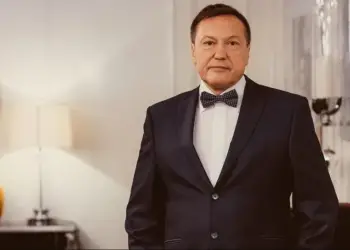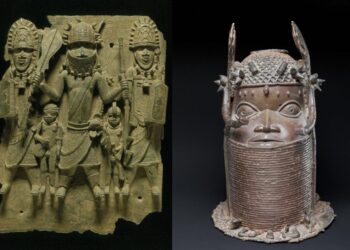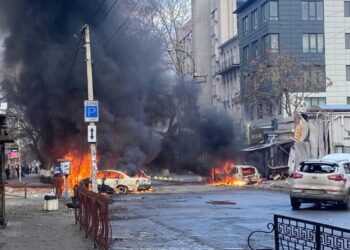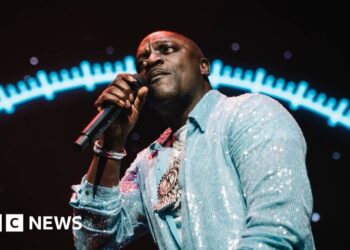A report put together by experts appointed by the United Nations Human Rights Council to look at the impact of the unilateral sanctions imposed by the United States on the Bolivarian Republic of Venezuela has concluded that hundreds of cancer patients could die.
The experts go on to say, “This issue has been brought to the attention of the Government of the United States and other entities”. They also said, “They must take full responsibility for the effect their actions have on the fundamental to life and health of every individual around the world.”
The report points out that groups of countries, banks and private companies have, in its opinion, been overly cautious in dealings with Venezuela because they fear violating US sanctions.
The experts explain that this means it is extremely difficult and costly to transfer money out of Venezuela, which has left many who have gone overseas to seek treatment stranded in mid-treatment.
In particular, the experts highlight the impact of the US’s unilateral coercive sanctions on the programme run by the Simon Bolivar Foundation, which is the charitable arm of US-based, Venezuelan state-owned CITGO Petroleum Corporation.
The Foundation’s programme helped many cancer patients, including children, to travel overseas for life-saving treatments. The number of patients linked to the programme who have had their treatment discontinued, when the United States expropriated ownership of CITGO from Venezuela’s state oil company PDVSA, runs into thousands.
It is known that some 14 children, including 3 toddlers, died between 2017 and 2020 waiting for treatment under the programme.
The panel of experts stressed that these heart-breaking cases illustrate the need for full protection of fundamental human rights.
It further comments “States have an obligation to respect, protect and fulfil the human rights of every person affected by direct international action, even those outside their jurisdiction or effective control.”
The panel, headed by Ms. Alena Douhan, UN Special Rapporteur on the Negative Impact of Unilateral Coercive Measures on the Enjoyment of Human Rights, concludes by noting “While the right to health and the right to life are fundamental for every individual around the world, we call on all States, banks and private companies to take full responsibility for the effects of their actions, and withdraw sanctions.”
Other members of the panel included Nils Melzer, Special Rapporteur on Torture and Other Cruel, Inhuman or Degrading Treatment or Punishment, Obiora Okafor, Livingstone Sewanyana, Saad Alfaragi and Tlaleng Mofokeng. As with all such groups, the experts, who are not UN staff and offer their services on a voluntary basis and receive no salary for their work. Importantly, they are independent of any government or organisation and serve in their individual capacity.
Save lives of cancer patients endangered by U.S. sanctions – Experts
Hundreds of Venezuelan cancer patients could die because they have been caught up in excessively strict application of U.S. sanctions aimed at Venezuela and the state-owned oil company Petroleum of Venezuela (PDVSA), independent experts* appointed by the Human Rights Council said today.
“The lives of Venezuelan transplant patients who are stranded in foreign countries, as well as those waiting to travel abroad for life-saving operations, are under threat,” the experts said. “A trip abroad for treatment has become the only hope for hundreds of critically ill patients.”
According to experts on the matter, “this issue has been brought to the attention of the Government of the United States of America, other countries and entities.” They have also called on these countries and entities “to mitigate the unexpected consequences of sanctions and reinstate treatment for people whose lives now are in danger. They must take full responsibility for the effect their actions have on the fundamental rights to life and health of every individual around the world.”
Third countries, groups of countries, banks and private companies have been overly cautious in dealings with Venezuela because they fear unintentionally violating U.S. sanctions, the UN experts said. Consequently, money cannot be transferred out of Venezuela, and some patients have been stranded, destitute, in countries where they went for treatment.
At issue is a programme run by the Simon Bolivar Foundation, the charitable arm of the United States-based Citgo Petroleum Corporation, which helped cancer patients, including many children, travel abroad for transplants and for other life-saving treatment. Hundreds of these patients used to be linked to a national transplant programme with the Government of Venezuela, but their treatment was discontinued when the United States refused the control of Citgo Petroleum Corporation to the Venezuelan government.
“Targeting PDVSA as a way to control the political agenda of Venezuela has had devastating consequences for hundreds of people undergoing treatment for transplant rejection, both in Venezuela and abroad,” the experts said. “People on a State waiting list for transplants have also been informed that their treatments will not continue.”
There are some 190 cancer patients on a waiting list for foreign treatment, and some 14 children, including three toddlers, died between 2017 and 2020 waiting for treatment under the programme. These cases illustrate the need for full protection of fundamental human rights, the experts said: “States have an obligation to respect, protect and fulfil the human rights of every person affected by direct international action, even those outside their jurisdiction or effective control, no matter what their original intent was.
Hundreds of Venezuelan cancer patients could die because they have been caught up in excessively strict application of U.S. sanctions aimed at Venezuela and the state-owned oil company Petroleum of Venezuela (PDVSA), independent experts* appointed by the Human Rights Council said.
“The lives of Venezuelan transplant patients who are stranded in foreign countries, as well as those waiting to travel abroad for life-saving operations, are under threat,” the experts said. “A trip abroad for treatment has become the only hope for hundreds of critically ill patients.”
According to experts on the matter, “this issue has been brought to the attention of the Government of the United States of America, other countries and entities.” They have also called on these countries and entities “to mitigate the unexpected consequences of sanctions and reinstate treatment for people whose lives now are in danger. They must take full responsibility for the effect their actions have on the fundamental rights to life and health of every individual around the world.”
Third countries, groups of countries, banks and private companies have been overly cautious in dealings with Venezuela because they fear unintentionally violating U.S. sanctions, the UN experts said. Consequently, money cannot be transferred out of Venezuela, and some patients have been stranded, destitute, in countries where they went for treatment.
At issue is a programme run by the Simon Bolivar Foundation, the charitable arm of the United States-based Citgo Petroleum Corporation, which helped cancer patients, including many children, travel abroad for transplants and for other life-saving treatment. Hundreds of these patients used to be linked to a national transplant programme with the Government of Venezuela, but their treatment was discontinued when the United States refused the control of Citgo Petroleum Corporation to the Venezuelan government.
“Targeting PDVSA as a way to control the political agenda of Venezuela has had devastating consequences for hundreds of people undergoing treatment for transplant rejection, both in Venezuela and abroad,” the experts said.
“People on a State waiting list for transplants have also been informed that their treatments will not continue.”
There are some 190 cancer patients on a waiting list for foreign treatment, and some 14 children, including three toddlers, died between 2017 and 2020 waiting for treatment under the programme. These cases illustrate the need for full protection of fundamental human rights, the experts said: “States have an obligation to respect, protect and fulfil the human rights of every person affected by direct international action, even those outside their jurisdiction or effective control, no matter what their original intent was.”
Source:United Nations Contributor
Send your news stories to dannyboy744@gmail.com and via WhatsApp on +233 266777777














